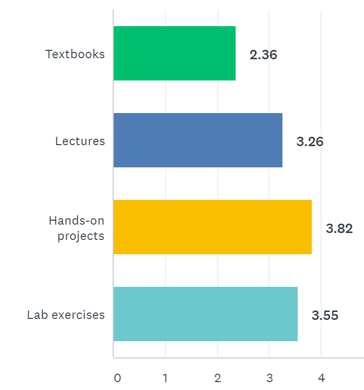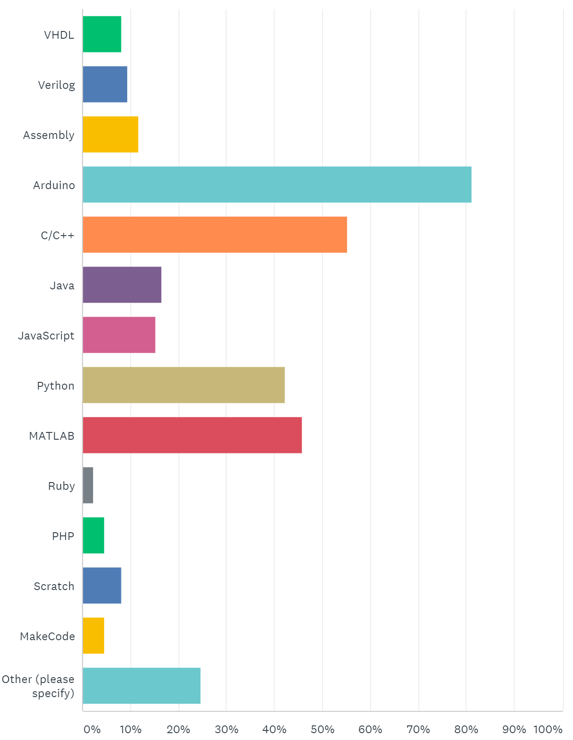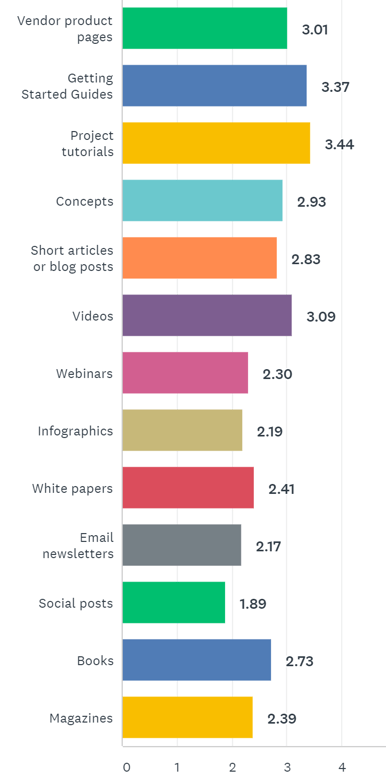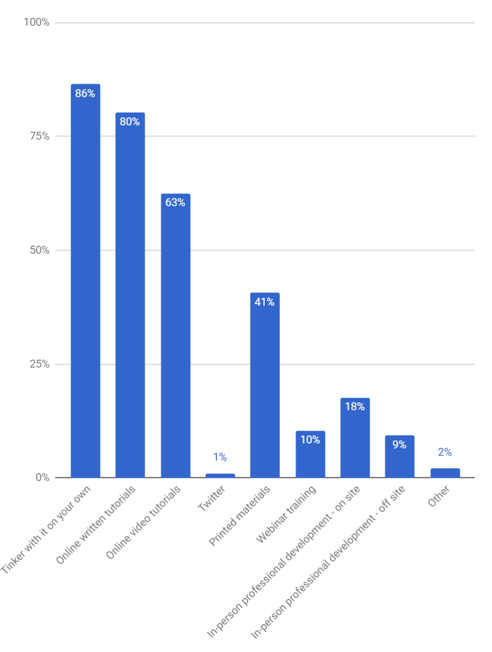In surveying our educator community this year, we decided it would be best to separate K-12 and higher education since they seem to have very distinct needs. We gathered some incredible insights from these surveys, and they have a pretty substantial impact across our business from product development through support. We already reported on our K-12 results; now we would like to share what our higher education audience is telling us. Respondents to this survey were mostly professors and lecturers, with a healthy number of lab managers. Here we go...
How important are each of the following in your courses?
We have worked with many professors who are making the decision to balance or replace their textbooks with more hands-on assignments that include hardware. We are not sure how large this trend is or how much momentum is behind it, but it showed up in the responses to this question. Survey respondents rated their responses from 1-4 (1=Not At All Important; 2=Somewhat Not Important; 3=Somewhat Important; 4=Very Important) in relation to how important each item is in their courses. Interestingly, "Hands-on Projects" was rated the highest at 3.82. Additionally, we asked a follow-up question about specific areas where hands-on projects are helpful - IoT, robotics and fabrication (other than 3D printing) came out on top.
Which programming/hardware languages do you use in your course(s)?
In terms of programming languages used by this particular sample of higher education survey participants, it is clear that - although several programming languages are used - there are clear front runners: Arduino, C/C++, Python and MATLAB. It is clear Python is growing - this was also evident in our K-12 report as well as in several industry reports. In the "Other" category, Processing also came up quite often.

When consuming information that helps you do your job, what is your format preference?
Interesting fact: About a third of our (sparkfun.com) web site traffic starts with someone visiting one of our tutorial pages, and another third starts with someone landing on a product page. That said, it was heartening to learn from the survey respondents that tutorials, getting-started guides, videos and product pages are at the top of the types of information that are the most helpful. In the chart below, you can see how respondents rated a number of formats (1=Not At All Helpful; 2=Somewhat Not Helpful; 3=Somewhat Helpful; 4=Very Helpful).
 How do you prefer to learn to use a new piece of hardware or software?
How do you prefer to learn to use a new piece of hardware or software?
Cheers to tinkering! Survey respondents were able to select an unlimited number of options for this response - 86 percent chose tinkering! Of course, we at SparkFun endorse this whole-heartedly. Tinkering was followed closely by "Online written tutorials," "Online video tutorials" and "Printed materials."

Hopefully, you find some value in these results! We definitely appreciate every person who took the time to fill out the survey - we know it momentarily took you away from your tinkering. Also, because the results reflect an interest in tutorials and videos, be sure to check out our tutorials.


helpful information